
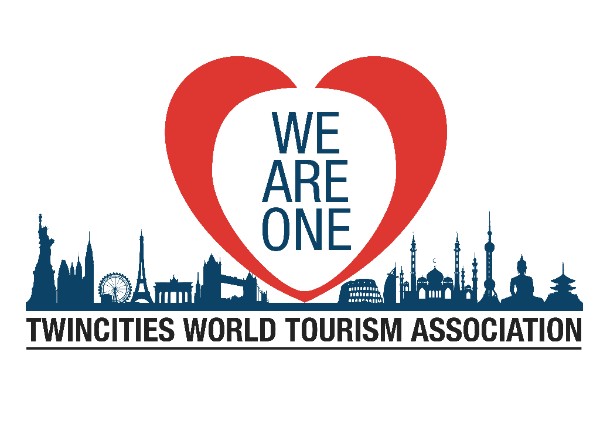
Twin Cities World Tourism Association to be founded at PATA Travel Mart 2018
BANGKOK, June 18, 2018 — The Pacific Asia Travel Association (PATA) is pleased to announce that the founding of the Twin Cities World Tourism Association (TCWTA) will take place during PATA Travel Mart 2018 (PTM 2018) in Langkawi, Malaysia from September 12-14.
PATA CEO Dr. Mario Hardy said, “PATA assists destinations around the world in the development of a responsible and sustainable tourism industry and it is only through cooperation and mutually beneficial partnerships that destinations can achieve such goals. The Twin Cities World Tourism Association’s mission is in line with our activities and PATA Travel Mart is the perfect occasion to launch this initiative.”
Twin cities, also known as sister cities, are collaborations between two cities to foster friendship and understanding between different cultures and to form strategic international business links between them.
The Twin Cities World Tourism Association aims to support and increase tourism and travel between twin cities, support and increase the exchange of ideas and concepts related to tourism and travel between sister cities, and enhance and strengthen relations between twin sisters through tourism and travel.
During PTM 2018, the founding president, Mr. Thomas Binder, Mayor of Gossau-Zurich in Switzerland, will formally announce the foundation of the Twin Cities World Tourism Association (TCWTA) at the Twin Cities World Tourism Forum taking place inside the exhibition hall.
Furthermore, a Board of 14 members will be appointed during this time. The Board will consist of 13 mayors from countries from all over the world while Mr. Hüseyin Baraner, being the only non-mayor member, will be appointed as its General Secretary. This Board will meet once a year in the city of the president to exchange ideas, concepts, and plans. A meeting of the Board will also be held in Zürich or Gossau at a later date in order to sign the charter of the Twin Cities World Tourism Association.
TCWTA also plans to publish a “Twin Cities Almanac” to be presented at ITB Berlin, which will include an editorial note of the president, reports on the tourism and travel activities of twin cities, and interviews with mayors of twin cities on topics like desiderata, plans, projects and the tourism development of twin cities.
The TCWTA President plans to visit a developing country in Africa or Asia once a year in order to research opportunities to take part in projects to further and support tourism and travel in twin cities located in regions without large financial funds.
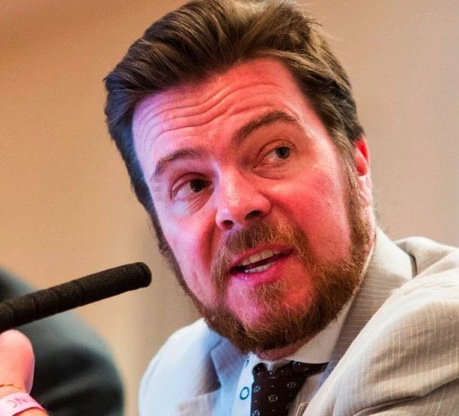
ETOA’s Nick Greenfield loses battle with cancer
Wednesday, 13th June 2018
ETOA, the European tourism association, is deeply saddened to announce that Nick Greenfield, Head of Tour Operator Relations, died on Sunday morning, following an eight-year battle with cancer. He had been working continually until last week.
After freelancing for several years, Nick joined ETOA full time in 2010 as Head of Tour Operator Relations. Having run the London office for NETC, Nick had experience of operations and had also worked as a tour guide. Guiding was an abiding passion; he went back on the road at least once a year.
Nick combined a hunger for culture with a passion for sharing his knowledge. This ranged from expositions on the Sienese Trecento to planning games to enthuse American schoolchildren in the Louvre. He knew his subject: there was not a country in Europe he had not visited and understood. In Italy, his first love, there was not a province that he did not know. He was a gifted linguist. In French, German, Italian, Spanish, Flemish, Croatian and Slovenian he had full fluency “I am not” he conceded to an amazed Belgian “a normal Englishman”.
Nick wore this lightly: his most obvious attributes were a passion for sport and a vast compendium of jokes.
Tom Jenkins, CEO, said: “The industry has lost a mine of information and a stalwart defender of its interests. His friends and colleagues have lost a great and gentle companion.”

Investing in the prevention of violence against children is good business
UNICEF and the Office of the UN Special Representative of the Secretary General on Violence against Children launched their joint study: “The Private Sector and the Prevention of Violence against Children in Latin America and the Caribbean” today.
The study points out the alarming context of violence against children and adolescents in the Latin America and the Caribbean region, where:
• Every day, 67 adolescents are victims of homicide
• 2 out of 3 children suffer from some type of violent discipline in their home
• 1 in 10 adults believe physical and humiliating punishment is necessary to educate a child.
The study presents positive regional private sector practices to eliminate all forms of violence against children and provides arguments to support increased business investment in private sector violence against children prevention strategies.
“Our joint publication is a key contribution to implementation of the 2030 Agenda, which has the ambitious vision of a world that invests in its children so they grow up free from violence, abuse and exploitation. This joint study emphasizes the crucial role that the private sector plays in this new development paradigm. Business investment and innovation are not only major drivers of productivity, inclusive economic growth and job creation; they can also help solve the challenges that compromise children’s right to be protected from all forms of violence. It is only when people and communities prosper, that businesses can sustainably succeed,” stated the UN Special Representative of the Secretary-General on Violence against Children, Marta Santos Pais.
In accordance with the Children Rights and Business Principles, developed in 2012, private sector companies have the responsibility to be positive agents of change for children and to take action to respect and promote the rights of children in their operations.
“The private sector is one of the main pillars of local and family economies, employs fathers, mothers and caregivers and influences national policies, so it can and must play a fundamental role in the prevention of violence against children,” said Marita Perceval, UNICEF’s Regional Director for Latin America and the Caribbean. “The good practices presented in this document, with measurable and replicable results, can serve as an example to companies in the region so that we all contribute to eradicate violence against children,” she added.
‘The Private Sector and the Prevention of Violence against Children in Latin America and the Caribbean Study’ was launched in Bogotá, during the Annual General Meeting of The Code, an organization which ensures compliance with the Code of Conduct on International Social Responsibility for the protection of children and adolescents against commercial sexual exploitation associated with travel and tourism.
For more information about UNICEF and its work, click here. For more information about the Office of the SRSG-VAC and its work, click here.
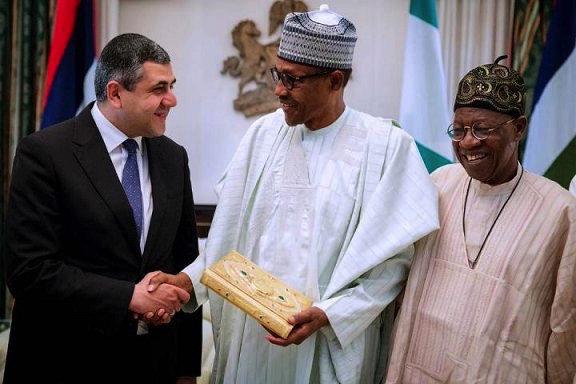
African Tourism Ministers Stress the Importance of Correct Tourism Measurement for Improved Policy
“Tourism Statistics: A Catalyst for Development”, was the theme of this year’s seminar in the context of the 61st Meeting of the UNWTO Commission for Africa (Abuja, Nigeria, 4-6 June). The meeting included a ministerial dialogue on the importance of tourism statistics under the topic “Better measure, better manage”.
The Commission for Africa attracted 18 tourism ministers from the region and key tourism stakeholders from 36 countries. Participants underscored how tourism projects can contribute to poverty alleviation, the importance of finding innovative approaches to developing tourism in the region, and the need to find and foster new partnerships and resources to develop the sector.
Against the backdrop of the growth of international tourism in Africa, tourism’s overall economic impact needs to be measured accurately in order for tourism strategies to effectively contribute to national economies. The ministerial dialogue addressed the significance of collecting and compiling quantitative and qualitative data, as well as the importance of commitments from national stakeholders and institutional partnerships for a rigorous tourism statistics system.
“The priorities of my mandate have been formed by listening to the needs of our member states and include the crucial targets of creating more and better tourism jobs, improving tourism education and fostering innovation”, said UNWTO Secretary-General, Zurab Pololikashvili. “We need to build tight links between public and private sectors for tourism to transform growth across the continent, and for the benefit of its people”, he added.
The meeting was attended by the President of Nigeria, Muhammadu Buhari, who stated that “Nigeria has great potentials for tourism and investment”, underscoring the relevance of the sector, both regarding its contribution to sustainable development and its role to further diversify the economy and increase social resilience.
In this context, the need for establishing a Statistical Framework for the Measurement of Sustainable Tourism (MST) was addressed. This Framework includes environmental, social and cultural tourism components geared towards achieving the 17 Sustainable Development Goals of the 2030 Agenda for Sustainable Development.
The next African Commission meeting will take place during the second quarter of 2019.
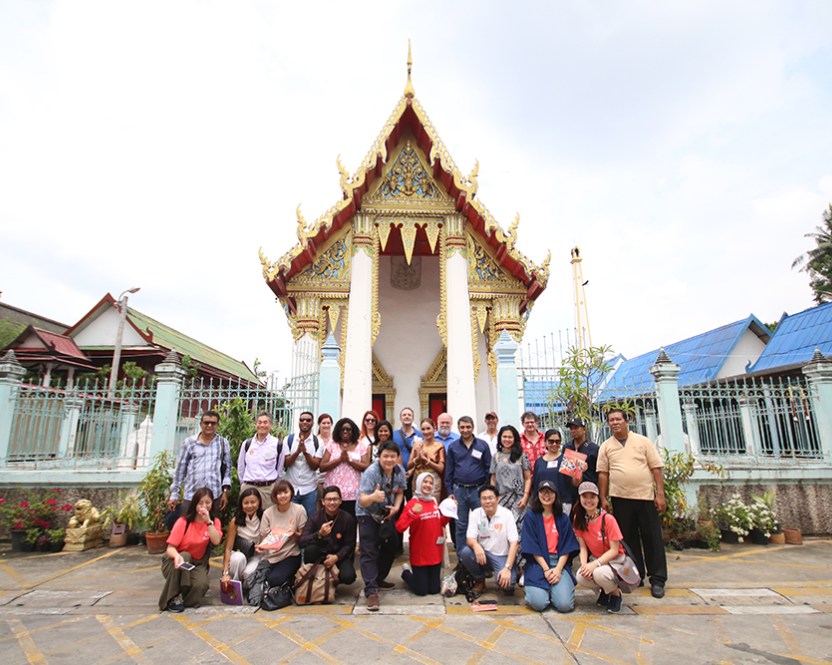
UNWTO Forum delegates savour Bangkok’s grassroots gastronomy
Bangkok, 31 May, 2018 – The second day of the 4th UNWTO World Forum on Gastronomy Tourism saw delegates fanning out across many parts of the Thai capital to enjoy the boundless diversity of its multi-cultural grassroots gastronomy.
In a carefully planned series of Bangkok Food Tours, the delegates enjoyed personal encounters with the city’s emerging generation of young Thai entrepreneurs, family-owned foodshops and third-generation immigrants from China and India – all united in providing visitors to Thailand an unmatched culinary experience.
All the tours were focussed on small and medium sized enterprises in many different parts of Bangkok, buried in the back streets of the Old City, in market-places or right on the corners of what is known as the city’s Wall Street. They included bakeries, dessert shops, noodle vendors and Thai culinary specialists.
All tours have been designed by a number of start-up entrepreneurs who are passionate about preserving not just Bangkok’s gastronomic culture but the entire environment in which they operate.
Mr. Yuthasak Supasorn, Governor of the Tourism Authority of Thailand (TAT), said: “We thought it would be good idea for delegates to enjoy half a day getting away from the conference presentations and actually experiencing Bangkok’s gastronomic diversity. We are glad that the feedback was very positive and hope that delegates will spread the word to their families, friends and colleagues.”
One itinerary led by Bangkok Food Tours (BFT) allowed participants to experience the first Historic Bangrak Food and Cultural Walking Tour, awarded Thailand’s best cultural tour programme. It deploys technology and service design process to help the local community by featuring local dishes.
Another itinerary led by HiveSters, took participants to Nang Loeng, where family-owned food-shops are bringing back the disappearing community and culture. Participants enjoyed the century-old market and taste traditional food.
A third itinerary by Local Alike focussed just on nine Thai auspicious desserts, each with different meanings and ways of cooking by SME eateries in the old town, all surrounded by ancient temples of over 100 years old. Delegates then visited the Princess Mother Memorial Park, dedicated to the grandmother of His Majesty King Mahavajiralongkorn who was also a great lover of Thai desserts.
The fourth itinerary designed by Trawell Workshop, featured multiple stops included in a Food x Technology City Pass covering a number of local communities, hostels and coffee shops in the vicinity of the city’s Giant Swing landmark.
Delegates also visited local markets and heard personal stories from the family-owned eateries, giving the entire experience a personal human touch. They later participated in a debriefing session to exchange views and share comments on what they saw and learned.
The tours will continue on the third and last day of the forum on June 1

WTTC and IATA Agree to Partner for Seamless Passenger and Better Traveller Experience
The World Travel & Tourism Council (WTTC) and the International Air Transport Association (IATA) have agreed to partner to achieve the benefits of biometrics and deliver traveller digital identity management throughout the Travel & Tourism sector for a seamless passenger experience.
The agreement, which was announced on the sidelines of the IATA AGM in Sydney, Australia, today, will mean that the two organisations will adopt a common approach, exchange information and work together to energise the entire sector to achieve international harmonisation through the use of biometrics standards and interoperability.
IATA, on behalf of its member airlines, is promoting a range of innovations to be considered for airports of the future, including the One iD initiative – IATA’s vision of an “end-to-end passenger experience that is seamless, efficient and secure” which aims at offering passengers a frictionless airport process allowing the possibility to walk through the airport without breaking stride.
Likewise, WTTC, through its Seamless Traveller Journey programme, is committed to working with the existing initiatives in this area to encourage the use of biometric technology and digital identity throughout the wider Travel & Tourism sector so travellers can enjoy a seamless, secure and efficient end-to-end journey.
Gloria Guevara, President & CEO, World Travel & Tourism Council, said: “Biometric technology is essential for the future of travel. It can help us make travel more seamless, more efficient and more secure. It improves the existing processes, reduces time for the traveller and will allow the sector to grow. WTTC and IATA are committed to maximize the potential of Travel & Tourism to create jobs and drive economic growth. By working together we can enhance security and improve the whole passenger journey.”
IATA is forecasting a rise from 4 billion annual air passengers now to 7.8 billion over the next twenty years, and UNWTO estimates global international arrivals to rise from 1.3 to 1.8 billion by 2030.
“The traveler experience has to improve if we want to achieve the growth potential. Last year one of every five jobs created in the world were in our sector, if we don’t use biometrics technology to improve the processes, we are not going to be able to achieve the potential of Travel & Tourism. Millions of jobs are at stake, so this is a priority for WTTC and our members. “
IATA Director General and CEO Alexandre de Juniac said: “The journey thorough the airport is often a frustrating experience. Passengers have to verify their identity at numerous points across their journey. IATA One iD project is helping the industry rapidly move towards the day when a face, iris or fingerprint will act as a single biometric travel token. Partnerships are key to help realise this vision and today’s agreement with WTTC will act as a strong catalyst for industry change.”
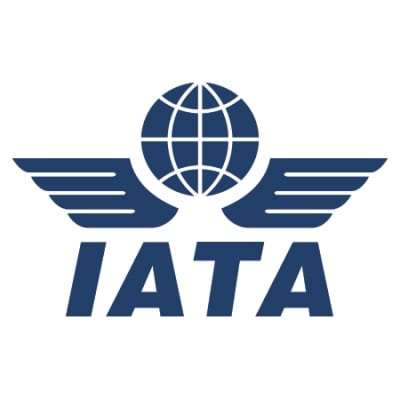
IATA tells governments: Avoid creeping re-regulation of the airline industry
Governments to take attention to the aviation world came in the IATA Director General’s Report on the Air Transport Industry at the 74th IATA Annual General Meeting (AGM) and World Air Transport Summit.
The International Air Transport Association (IATA) called for governments to facilitate the growth of global connectivity by avoiding creeping re-regulation, maintaining the integrity of global standards, and addressing a capacity crisis.
“On aviation’s core mission to deliver safe, secure, accessible and sustainable connectivity, the state of our industry is strong and getting stronger. And with “normal” levels of profitability, we are spreading aviation’s benefits even more widely. But there are challenges. Smarter regulation needs to counter the trend of creeping re-regulation. Global standards must be maintained by the states that agreed with them. And we need to find efficient solutions to the looming capacity crisis,” said Alexandre de Juniac, IATA’s Director General and CEO.
Re-Regulation
The deregulation of the air transport industry that began in 1978 in the US ignited global changes that enabled the spread of air transport’s benefits. The competition saw the price of air connectivity fall making air transport much more accessible. In 1978 the average person flew once every 6.6 years. Today the average is closer to once in two years.
A creeping trend of re-regulation, however, puts the gains of deregulation at risk. Citing regulatory actions from around the world, de Juniac noted that regulatory over-reach now includes attempts to prescriptively regulate passenger compensation, seat assignments, the ticket options that can be offered to consumers and prices charged for various ancillary services.
“Regulations must add value. In assessing that, regulators must recognize the power of competition and social media to safeguard consumer interests. Governments should not distort market effectiveness with regulations that second-guess what consumers really want,” said de Juniac.
This is the spirit of IATA’s “smarter regulation” campaign which asks governments to align with global standards, take into account industry input and analyze the costs of regulation against the benefits. De Juniac noted that one of the most exciting current regulatory developments is the sweeping review of US commercial regulations with the aim of keeping only those where the benefits outweigh the costs to both travelers and the industry.
Global Standards
De Juniac called for a vigorous defense of global standards that have guided the safe and efficient development of aviation. “We must take governments to task. It is unacceptable that global standards are being ignored by the very governments that created them,” said de Juniac.
De Juniac noted several examples:
India taxes international tickets in contravention of ICAO resolutions
States are planning new environment taxes even as the ICAO-brokered Carbon Offsetting and Reduction Scheme for International Aviation (CORSIA) is about to commence as the global market-based measure for managing emissions.
Nearly two decades after the Montreal Convention 1999 was agreed it is not universally ratified. Its important modernizations apply in only 130 states.
There is not 100% compliance with Chicago Convention Annex 13 requirements for complete accident investigations. Of the approximately 1,000 accidents over the last decade only about 300 accident investigations have been concluded with published reports.
Annex 17 of the Chicago Convention sets baseline security requirements. Yet ICAO audits reveal that only 28% of states meet them. Moreover, 37% of states fail on resolutions of security concerns.
Infrastructure
IATA urged governments to find sustainable solutions to ensure the infrastructure needed to meet growing demand for connectivity.
“We are in a capacity crisis. And we don’t see the required airport infrastructure investment to solve it. Governments struggle to build quickly. But with cash-strapped finances, many are looking to the private sector for solutions. We need more airport capacity. But be cautious. Expecting privatization to be the magic solution is a wrong assumption,” said de Juniac.
The privatization of airport infrastructure has not lived up to airline expectations. “As customers of many airports in private hands, airlines have far too many bitter experiences. Travelers also sense the problem. According to Skytrax, five of the top six traveler-preferred airports are public. Motivated by our members’ frustration, we did our own performance benchmarking. Privatized airports are definitely more expensive. But there is little difference in efficiency or investment levels compared to airports in public hands,” said de Juniac.
The results of airport privatizations run counter to the results of airline privatization which saw the cost of travel drop dramatically. Airlines do not accept that privatizing airports must lead to higher costs. And neither should consumers or voters. How can making the transport infrastructure more expensive—which means less competitive—be a legitimate public policy objective?” said de Juniac.
While IATA research did not reveal a one-size-fits-all solution to ensure sufficient, fit-for-purpose and affordable airport infrastructure, it did point towards positive experiences for consumers and airlines with variations of corporatization.
The 74th IATA AGM will consider a resolution on the privatization of airport infrastructure calling on governments to:
Focus on the long-term economic and social benefits of an effective airport as part of the country’s critical infrastructure,
Learn from positive experiences with corporatization, new financing models, and alternative ways of tapping private sector participation
Make informed decisions on ownership and operating models to protect consumer interests, and
Lock-in the benefits of competitive airport infrastructure with firm regulation.
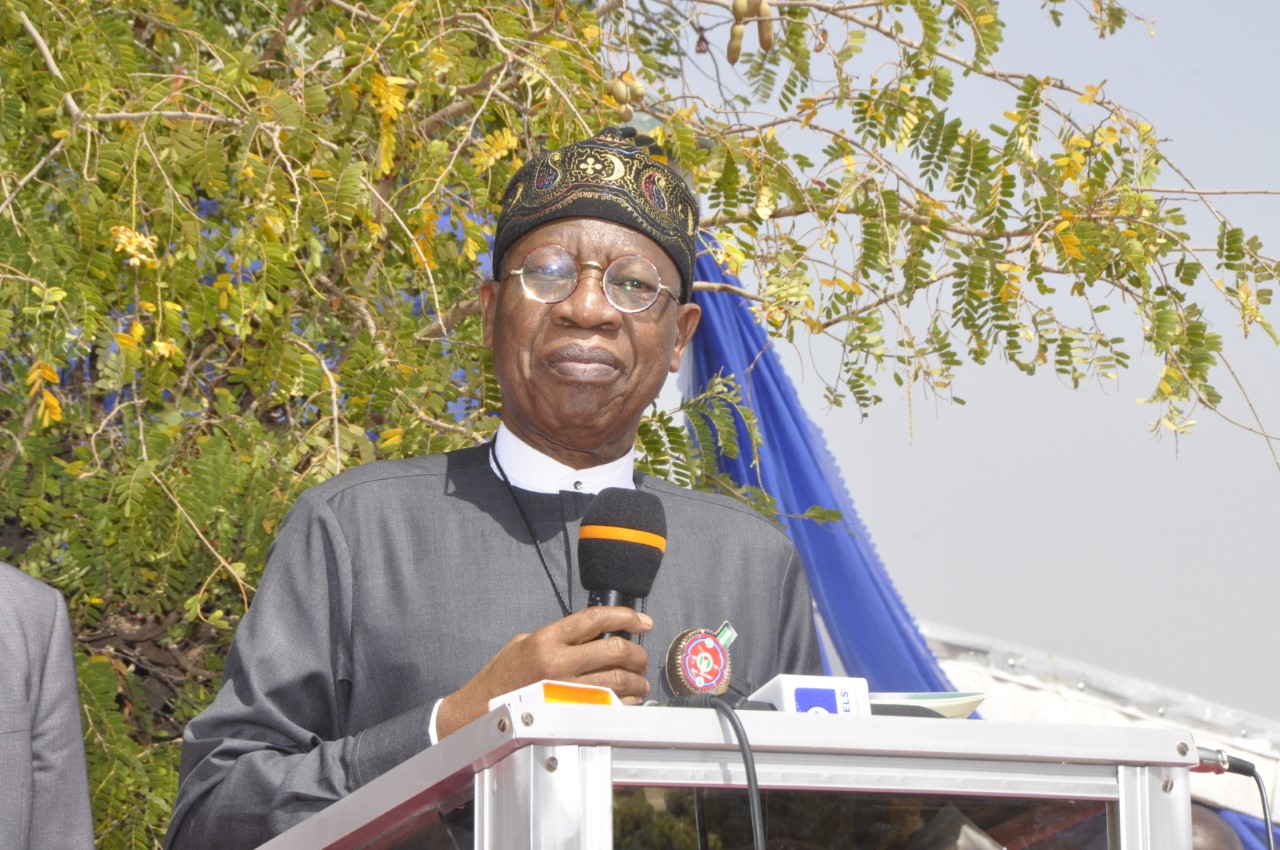
UNWTO Commission for Africa meeting has 26 countries attending
Tourism ministers from 26 African countries will attend the 61st United Nations World Tourism Organisation (UNWTO) Commission for Africa (CAF) meeting in Abuja from June 4-6. This was disclosed by Nigerian Minister of Information and Culture, Alhaji Lai Mohammed on Friday.
The African ministers are part of the 180 foreign delegates that will attend the three- day event.
The minister, accompanied by the permanent secretary of the ministry, Grace Isu-Gekpe, said the country hoped to use the opportunity offered by the event to exhibit the warmth of Nigerians, their diverse culture, organisational ability and readiness to host the world, particularly having recorded tremendous success in defeating the insurgency and revamping the economy.
“It’s a global platform for you to tell your own story and what story are we telling? We are telling the world that in the last couple of years, especially three years, Nigeria has been on the mend. We made tremendous progress in our fight against insecurity. We have made progress in revamping the economy and in governance. But for the efforts of this government in the area of fighting insecurity, nobody will be hosting this meeting here,” Mohammed said.
He expressed satisfaction with the level of preparations to host the meeting.
“I am very satisfied and I want to take this opportunity to thank the committee and the various Sub-Committees that have been responsible for this arrangement. We have been working very closely with the management of Transcorp in the last two and a half months, and we are satisfied with what we have seen.
He listed some of the cultural performances billed to feature at the event as the Seki Dance Drama from the South-South; Bolanle Austen-Peter’s ‘Fela and the Kalakuta Queens’, the Ekemini drummers from Akwa Ibom State and the Virgin Dance from Ebonyi State.
During ITB Berlin in March African Ministers met previously under an UNWTO Setting.
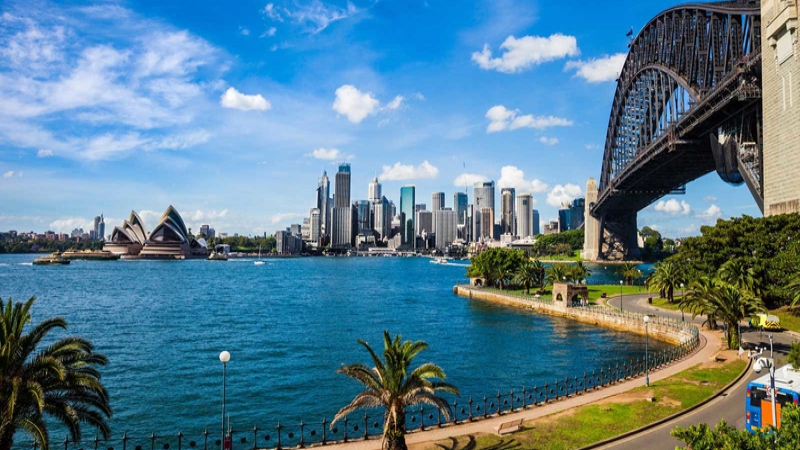
WTTC recognises Australia’s leadership on biometric travel facilitation
Australia continues to provide global leadership for travel facilitation measures with the trials of biometric passenger identification technology at major airports, says the World Travel & Tourism Council (WTTC).
During the International Air Transport Association (IATA) Annual General Meeting in Sydney, the world’s largest gathering of airline leaders, Gloria Guevara, President & CEO, WTTC, said:
“Travel & Tourism generates 10.4% of the world’s GDP, contributes with 313 million jobs, and helps build better societies. This is particularly the case in Australia, one of the largest and most advance economies of the world. For many years, Australia has been at the forefront of its use of technology to promote Travel & Tourism, from e-visas to early adoption of processing. This trend continues with innovative trials of biometric technology in major Australian airports across the country.”
2017 was a record year for Travel & Tourism in Australia with the sector contributing AUD197.5 billion to the economy and supporting 1.5 million jobs in 2017 (12.2% of total Australian employment).
“Last year, Australia welcomed 8.8 million international arrivals, a 7% increase from 2016. The potential for Travel & Tourism for Australia is very positive so we celebrate the support from the government and excellent public-private collaboration to continue creating more jobs,” Guevara said.
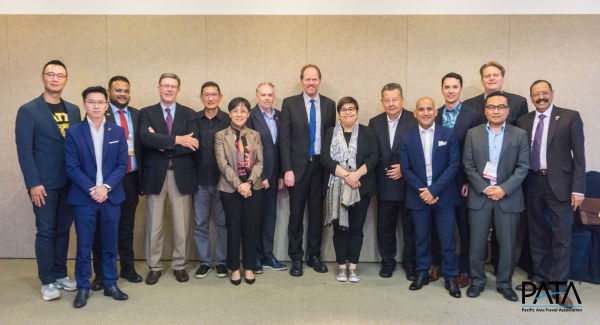
PATA elects new executive board
BANGKOK, May 31, 2018 — The Pacific Asia Travel Association (PATA) is pleased to announce the election of Dr. Chris Bottrill, Director, International and Dean of the Faculty of Fine and Applied Arts at Capilano University in North Vancouver, Canada as Chairman of the Association’s Executive Board. He replaces Ms. Sarah Mathews, Head of Destination Marketing APAC – TripAdvisor, Hong Kong SAR, who was elected Chairman in May 2017 and remains a member of the Executive Board as Immediate Past Chairperson.
“I am deeply honoured to be elected to the role of Chair of PATA and to work with a team of highly talented and accomplished Executive Board members from throughout the Asia Pacific region. We have just completed our annual summit in the beautiful town of Gangneung in the Republic of Korea, and were reminded by H.E. Mr. Ban Ki-moon, Dr. Taleb Rifai, and others just how important tourism can be for fostering peace and prosperity on our planet. We were also reminded of the responsibility we have to tread carefully on the environment, maintain cultural diversity, and embrace the rights of all individuals, which is not a simple task,” said Dr. Bottrill. “PATA is an organisation growing from strength to strength, and we are poised to play an ever-increasing role as a body representing governments, industry, and education in the fastest area of tourism growth on our planet. The task ahead for us is to embrace change, move fast, engage more, align strategically, and lead within the context of global sustainability goals. It is a privilege to play a small part as Chair in this important period of time for our industry and our association.”
As the immediate past Dean of the Faculty of Global and Community Studies at Capilano University, current Dean of Fine and Applied Arts, and Director, International, Dr. Bottrill oversees a wide and complex portfolio of university internationalisation, international projects and partnerships, tourism and hospitality, film, animation and design programming. He has taught a wide array of tourism topics including destination development, sustainability, marketing, and entrepreneurship at universities in Canada, New Zealand, the USA, and Austria.
Along with a PhD in tourism network and destination development from Victoria University of Wellington, New Zealand, he has extensive applied industry experience having completed over 50 tourism management and development projects around the globe. These have included new product feasibility analysis, marketing strategies, resource assessments, and multiple stakeholder engagement processes. He has also presented on tourism-related topics ranging from Olympic preparedness to community tourism development at conferences and forums in China, Canada, Russia, Finland, New Zealand, Vietnam, Malaysia, India, and Cambodia.
Dr. Bottrill’s first experience with PATA was as a conference volunteer in Vancouver in 1995. He joined PATA in 2011 and has participated in a wide array of roles. He has served as the Chair of the Human Capital Development (HCD) Committee and Vice Chair of the Sustainability and Social Responsibility Committee since 2014, and he has also been a Trustee of the PATA Foundation for the past three years. During his tenure as committee Chair and Vice Chair, Dr. Bottrill initiated a revision of both committee terms of reference, rebuilt committee membership, and led the formation of action plans which have seen many initiatives begin and come to fruition. In his role as HCD Chair, he also facilitated highly successful Youth Symposiums in Phnom Penh, Chengdu, and Bangalore, Guam, Sri Lanka, and Macao.
Dr. Bottrill is also the Director of the acclaimed PATA supported Vietnam Community Tourism project aimed at protecting ethnic hill tribe culture through tourism, and last year he led a PATA study on Indigenous Tourism and Human Rights.
During the PATA Annual Summit 2018 in Gangneung, Gangwon Province, Korea (ROK), PATA also elected a new Executive Board comprising Dato Haji Azizan Noordin, Chief Executive Officer – Langkawi Development Authority (LADA), Malaysia; Ms. Maria Helena de Senna Fernandes, Director – Macao Government Tourism Office, Macao, China; Mr. Bill Calderwood, Managing Director – The Ayre Group Consulting, Australia; Mr. Jon Nathan Denight, President & CEO – Guam Visitors Bureau, Guam, USA; Mr. Shahid Hamid, Executive Director- Dhaka Regency Hotel & Resort, Bangladesh; Mr. Luzi Matzig, Chairman – Asian Trails Ltd. Thailand; Mr. Benjamin Liao, Chairman – Forte Hotel Group, Chinese Taipei; Mr. Deepak Raj Joshi, CEO – Nepal Tourism Board, Nepal; Mr. Mohamed Sallauddin H.j. Mat Sah, General Manager Marketing – Malaysia Airports Holdings Bhd, Malaysia, and Mr. Gerald Perez, Managing Director – Leading Edge, Guam, USA.
On the election of the new Executive Board PATA CEO Mario Hardy said, “Over the past few years we have made great progress to ensure financial stability and recognition as a crucial voice in the responsible development of the travel and tourism industry in the Asia Pacific region. I look forward to working with our new Executive Board in building upon that success and supporting our members in creating a positive impact on not just the industry, but the world.”
Furthermore, Dato Haji Azizan Noordin was elected as the new Vice Chairperson, while Maria Helena de Senna Fernandes was elected Secretary/Treasurer.
Dato’ Haji Azizan Noordin was appointed as Chief Executive Officer of Langkawi Development Authority (LADA) to oversee its operation and management with 3 strategic thrusts of tourism, investment and community development.
He began his career in the tourism and hospitality industry with the Tourist Development Corporation Malaysia, now known as Malaysia Tourism Promotion Board, as a Tourist Officer in 1978. He has since served in various leadership roles including heading the Tourism Malaysia overseas offices in Seoul, Korea (ROK) and Jeddah, Saudi Arabia.
Dato’ Azizan Noordin retired from Malaysia Tourism Promotion Board (Tourism Malaysia) when he was the Deputy Director General (Promotion). He was responsible for overseeing the operations of the organisation and the promotional efforts all 44 Tourism Malaysia overseas offices. He led Tourism Malaysia sales missions overseas and has been a key speaker at many international tourism seminars and conferences.
After 40 years in the civil service, Dato’ Azizan is still dedicated in servicing the country and public. Through his advancement from rank and file in the past 40 years, he has amassed a wealth of experience and knowledge that is indeed beneficial to the tourism industry.
Dato’ Azizan is a graduate of the MARA University Institute of Technology in Malaysia, and holds two Masters in Business Administration (MBA) from Oxford Learning Centre of Excellence and Institute of Technology in Australia.
Mr. Peter Semone, President & Founder – Destination Human Capital Ltd, Ireland and Mr. Soon-Hwa Wong, CEO – Asia Tourism Consulting Pte, Ltd, Singapore have been appointed to the Executive Board as non-voting members.
Mr. Abdulla Ghiyas, President – Maldives Association of Travel Agents and Tour Operators (MATATO) and PATA Face of the Future 2018, joins the PATA Executive Board as a non-voting member and observer for a one-year term at the invitation of the PATA Chairman.
The new Executive Board members were confirmed at the PATA Board Meeting on May 20, 2018 during the PATA Annual Summit 2018 in Gangneung, Gangwon Province, Korea (ROK).
